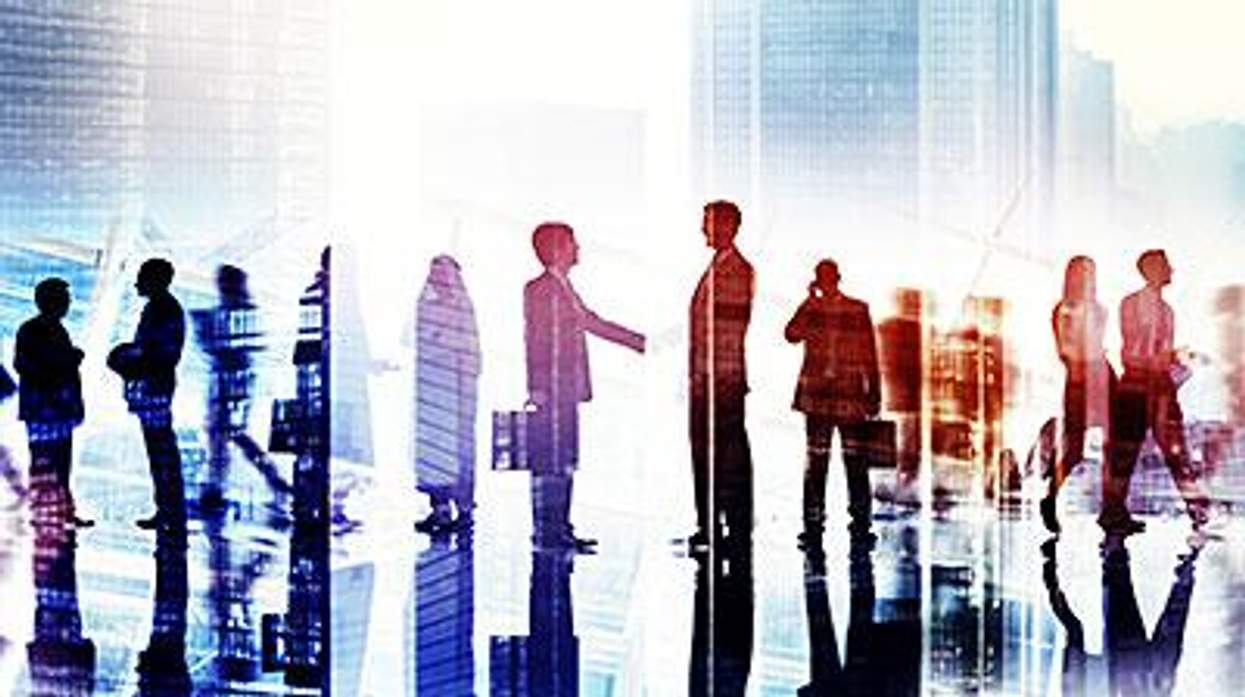I've worked at The Economist for nearly a decade, but I almost didn't. Though I was first given the opportunity to work for the century-old brand in the mid-'90s, I turned it down because I perceived it to be an old boys' network. The publication has stood up for socially liberal causes since it began, arguing against capital punishment, slavery, and bigotry toward people of color, but its stance on gay employees was a mystery to me, and I didn't think I would thrive there as an openly gay man.
This unease is no doubt why 62 percent of today's LGBT university graduates slip back into the closet when they begin their first job. I initially did this too; out of college, I worked for two advertising agencies, at which I let only a few colleagues know I was gay (although, let's be real: The rest of them probably knew). Within a few years, I came to the conclusion that to be truly successful and engaged, I had to be 100 percent authentic. If I'm using a chunk of my brain to hide away something about myself, I'm not at full capacity. In 1996, I accepted a job at an agency in London and, for the first time in the workplace, I let myself be ... me.
This kind of authenticity doesn't always yield a happy ending. Nearly one in 10 LGBT employees have left a job because the environment was unwelcoming, and as most governments don't provide legal protection for LGBT employees -- such as prohibiting discrimination or harassment because of sexual orientation -- LGBT people understandably want to work someplace they can feel certain their rights will be protected.
Today my name tends to frequent the media lists that call out notable LGBT business leaders, but I well remember a time when I didn't feel confident that The Economist would be comfortable with my advocacy or with me. I was wrong about The Economist, but there was no way to know that then. I've since worked to make its meritocratic culture public knowledge, and I think other companies that haven't yet spelled out their position on workplace diversity and inclusion should follow suit. The freedom to be authentic at work is incredibly important -- and not just for my well-being or anyone else's, but for all organizations that want to attract the best talent and want the best of what that talent has to offer.
Eighty-eight percent of Fortune 500 companies have now implemented nondiscrimination policies protecting their LGBT employees, yet not many of them are making these policies conspicuous. It was The Economist's appointment of an Orthodox Jewish CEO that led me to see that its network might be more open than I thought. I joined in 2006, and I was absolutely right. The thing that changed in the time between when I didn't and then did want to work for The Economist wasn't its attitude toward LGBT employees so much as my perception of its attitude toward LGBT employees. The experience of almost missing the most exciting position of my career because of a misunderstanding has taught me that those organizations not proudly and publicly inclusive of the LGBT community are missing enormous opportunities for talent simply because of what that silence says about their organization.
I've heard it said in practical terms that there are not that many gay, lesbian, bisexual, and transgender people out there -- perhaps 7 percent of the population, perhaps 1 percent of the population, all depending on the poll. Either way, statistically speaking, the LGBT community makes up a small minority of the workforce. If you're looking at it coldly, you could argue that this percentage doesn't matter much. But it really, really does.
Companies that include messages of LGBT acceptance in their branding also send a signal to women and to those who are minorities because of their religion or their race. I know this anecdotally from female friends of mine who've said, "If a company is going to be friendly to the LGBT group, they're probably going to be a company that's grown-up enough to be open to the fact that I'm a woman." If you add women and minorities to that small percentage, you start to see that the impact of inclusive messaging grows much larger and that the talent that a company may be missing out on with an ambivalent or absent message is potentially huge. From a commercial viewpoint, being openly LGBT-inclusive makes so much business sense. And from a human viewpoint, it is just the right thing to do. 
Op-ed: The Economist's Out Marketing Boss on Corporate Inclusivity
The venerated magazine's chief marketing officer says corporations must go beyond being LGBT-friendly; they have to let prospective employees know they'll be respected.















